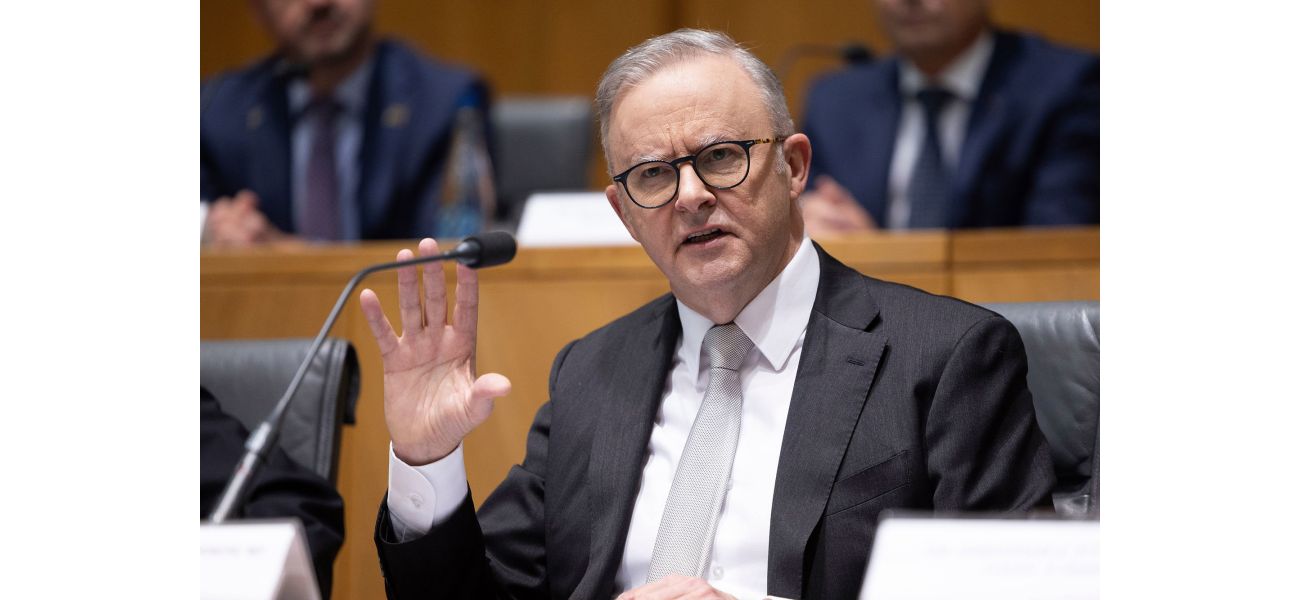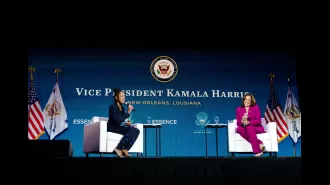Children to be banned from using social media platforms in effort to protect their safety and well-being.
Australia plans to restrict children's access to social media due to concerns about its effect on their developing minds.
September 9th 2024.

The Australian government has announced a plan to limit the use of social media for children until they reach a certain age. This decision comes in response to growing concerns about the potential negative effects on young minds. Other states, such as Victoria and South Australia, have already made similar commitments, and the Albanese government will be introducing legislation on the matter tomorrow.
Many have likened the restrictions on social media to those placed on cigarettes and alcohol, as more evidence emerges about the harm it can cause to children. Prime Minister Anthony Albanese stated that the government is listening to the concerns of parents and is determined to take the right approach. He acknowledged that technology is constantly evolving, and while it may not be possible to protect every child from every threat, the government is committed to doing all they can.
Concerned parents have expressed their worries about the impact of social media on their children's well-being. As Albanese pointed out, this is a new challenge that no generation has faced before, and there is no clear roadmap to follow. Currently, there is no specific age limit in place, but the government is exploring the use of age assurance technology that could potentially set the limit between 13 and 16. Although most major social media companies have a minimum age requirement of 13, these restrictions are easily bypassed.
The legislation will be developed in collaboration with the National Cabinet and will draw on a report by former High Court Chief Justice Robert French, which was commissioned by the South Australian government and released yesterday. Albanese emphasized that the safety and well-being of young people is of utmost importance and that this action is being taken because enough is enough.
The issue of age limits for social media was raised by South Australian Premier Peter Malinauskas during a recent National Cabinet meeting. He then announced his state's proposal, and Federal Opposition Leader Peter Dutton has also expressed support for introducing an age limit. Dutton highlighted the inconceivability of allowing a 13-year-old to freely interact with strangers in a public park or exposing them to explicit content in a magazine.
Malinauskas has pledged to work closely with the federal government to implement the ban and stressed that early access to addictive social media is causing harm to children. He compared the situation to cigarettes and alcohol, stating that when a product or service is causing harm to children, governments must take action. The Labor Party has also allocated a budget of $6.5 million for a trial of age verification technology, which they believe could be used to limit social media use or block access to online pornography for minors.
The testing of this technology is set to begin this week after consultation with various stakeholders, including parents, young people, social media platforms, and academics. However, it is unclear how the age limits will be enforced. Experts have suggested self-reporting, parental consent, and estimating a user's age based on their appearance or behavior as potential solutions. However, there are also concerns about privacy and the use of personal data.
RMIT University Professor Lisa M Given highlighted these concerns in an article for The Conversation earlier this year. She pointed out that while government-issued digital IDs could provide a secure alternative for age verification, not everyone may have access to them. This could pose a challenge for those who do not have passports or driver's licenses. Ultimately, the government is determined to find a solution that balances the protection of children with the privacy of users. Keep up with all the latest news, celebrity gossip, and sports updates by following us on our WhatsApp channel. Rest assured, your details will remain private, and your feed will not be cluttered with comments or algorithm-generated content.
Many have likened the restrictions on social media to those placed on cigarettes and alcohol, as more evidence emerges about the harm it can cause to children. Prime Minister Anthony Albanese stated that the government is listening to the concerns of parents and is determined to take the right approach. He acknowledged that technology is constantly evolving, and while it may not be possible to protect every child from every threat, the government is committed to doing all they can.
Concerned parents have expressed their worries about the impact of social media on their children's well-being. As Albanese pointed out, this is a new challenge that no generation has faced before, and there is no clear roadmap to follow. Currently, there is no specific age limit in place, but the government is exploring the use of age assurance technology that could potentially set the limit between 13 and 16. Although most major social media companies have a minimum age requirement of 13, these restrictions are easily bypassed.
The legislation will be developed in collaboration with the National Cabinet and will draw on a report by former High Court Chief Justice Robert French, which was commissioned by the South Australian government and released yesterday. Albanese emphasized that the safety and well-being of young people is of utmost importance and that this action is being taken because enough is enough.
The issue of age limits for social media was raised by South Australian Premier Peter Malinauskas during a recent National Cabinet meeting. He then announced his state's proposal, and Federal Opposition Leader Peter Dutton has also expressed support for introducing an age limit. Dutton highlighted the inconceivability of allowing a 13-year-old to freely interact with strangers in a public park or exposing them to explicit content in a magazine.
Malinauskas has pledged to work closely with the federal government to implement the ban and stressed that early access to addictive social media is causing harm to children. He compared the situation to cigarettes and alcohol, stating that when a product or service is causing harm to children, governments must take action. The Labor Party has also allocated a budget of $6.5 million for a trial of age verification technology, which they believe could be used to limit social media use or block access to online pornography for minors.
The testing of this technology is set to begin this week after consultation with various stakeholders, including parents, young people, social media platforms, and academics. However, it is unclear how the age limits will be enforced. Experts have suggested self-reporting, parental consent, and estimating a user's age based on their appearance or behavior as potential solutions. However, there are also concerns about privacy and the use of personal data.
RMIT University Professor Lisa M Given highlighted these concerns in an article for The Conversation earlier this year. She pointed out that while government-issued digital IDs could provide a secure alternative for age verification, not everyone may have access to them. This could pose a challenge for those who do not have passports or driver's licenses. Ultimately, the government is determined to find a solution that balances the protection of children with the privacy of users. Keep up with all the latest news, celebrity gossip, and sports updates by following us on our WhatsApp channel. Rest assured, your details will remain private, and your feed will not be cluttered with comments or algorithm-generated content.
[This article has been trending online recently and has been generated with AI. Your feed is customized.]
[Generative AI is experimental.]
0
0
Submit Comment





